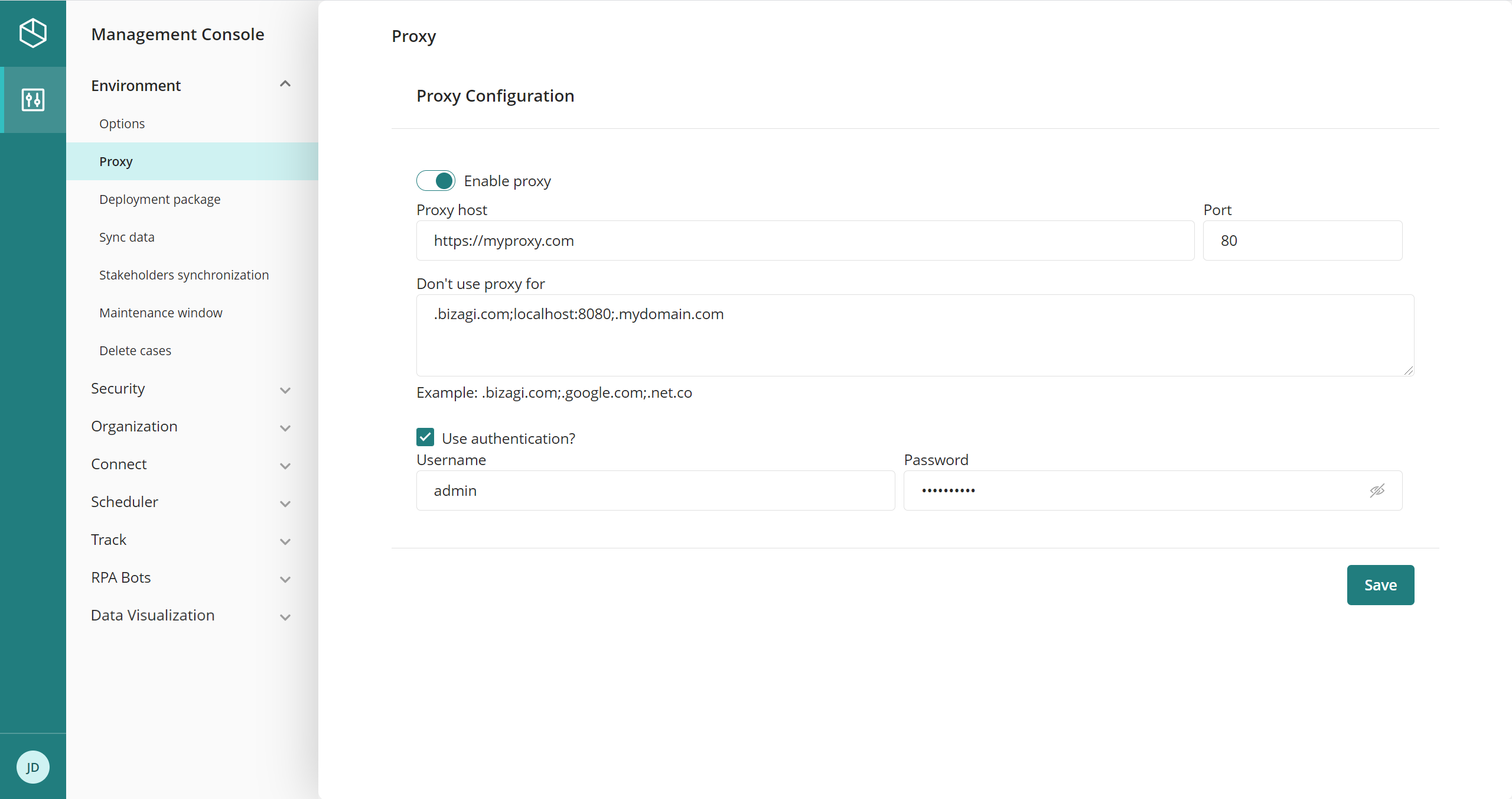Overview
Even though Bizagi Studio offers a complete and autonomous service, sometimes is necessary to connect to external services. To avoid direct connections, some organizations use proxy severs. In such scenarios, Bizagi provides a Proxy configuration option available through the Proxy tab in your Management Console.
Features using the Proxy configuration
The Proxy configuration is meant to work when there are integrations with the next Bizagi features::
oCustom, in this case the creator of the connector is responsible to adjust it so is compatible with the global Proxy.
•SAP cloud Platform connector.
•ECM.
•RPA (excluding attended RPA).
A Proxy can be configured to each of the environments of a project: Development, Test, and Production. To change the configuration in other environments you can either make a deployment. Deployments or microdeployments include the information registered in the proxy configuration. However, you can also change this configuration from your environment's Management Console.
Proxy Configuration
To configure a Proxy in any of these environments enable the Proxy and enter the information necessary:

•Proxy host: this corresponds to the URL of the Proxy host.
•Port: this is the port that the Proxy is gonna use to connect to the external service.
•Don't use Proxy for: this corresponds to the elements that must not go through the Proxy and these must be separated by semicolon, for example, .bizagi.com;.mydomain.com. Only domains can be excluded, specific endpoints as http://services.eastus.cloudapp.azure.com/RestWS2/Service.svc cannot be excluded.
•Use authentication?: This option is available in case you need to authenticate to your Proxy. If this option is selected the user name and password sections will appear to enter the corresponding information.
SSL Proxying
Some proxies let the use of self-signed certificates to get a secure connection using Secure Sockets (SSL). This feature is usually known as SSL Proxying. However, Bizagi does NOT support SSL Proxying when they generate their own self-signed certificates.
Last Updated 12/11/2024 2:28:01 PM